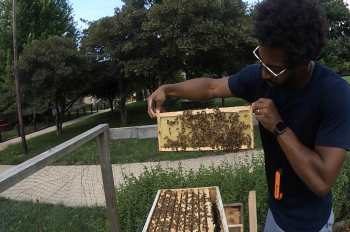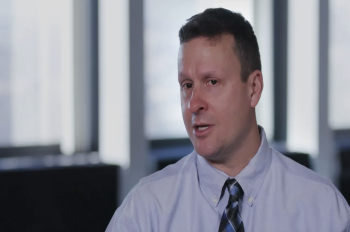Physics Ph.D. Graduates Checchin and Martinello Win Prestigious Peoples Fellowships at Fermilab
Two 2016 Illinois Tech physics Ph.D. graduates, Mattia Checchin and Martina Martinello, have won prestigious Peoples Fellowships at Fermi National Accelerator Laboratory (Fermilab).
“This is a significant award that is unprecedented for an Illinois Tech Ph.D. graduate,” said John Zasadzinski, Paul and Suzi Schutt Chair of Science, professor of physics, and Checchin’s and Martinello’s adviser when they were students. “Mattia and Martina are highly deserving of the Peoples Fellowships, as they are already among the international leaders in the field of superconducting accelerator cavities.”
Peoples Fellowships are granted at Fermilab to outstanding accelerator scientists early in their careers to strengthen Fermilab’s capabilities in accelerator science and related technologies and to train the new generation of leaders who will carry the field forward in the future. Peoples Fellows have great freedom in choosing their research activities, and are provided with significant research support. The award is named for Fermilab’s John Peoples.
As Illinois Tech doctoral students working at Fermilab, Checchin and Martinello contributed to breakthrough technology for particle accelerators using superconducting radiofrequency (SRF) cavities. Their Ph.D. research on the electromagnetic and thermal properties of these cavities led to multiple invited talks at international conferences as well as prizes and other recognition.
Both had been working as postdoctoral research associates at Fermilab when they were named Peoples Fellows.
Said Anna Grassellino, technical division deputy director head at Fermilab, “Former Peoples Fellows at Fermilab include current leaders of the accelerator field worldwide, and many of them have moved quickly through brilliant careers and are now heading departments or sectors at Fermilab and worldwide. Mattia and Martina certainly are among the leading young scientists in the SRF field on the international scene, and I’m sure they will progress quickly with their career as scientists and, in the future, also as managers.




